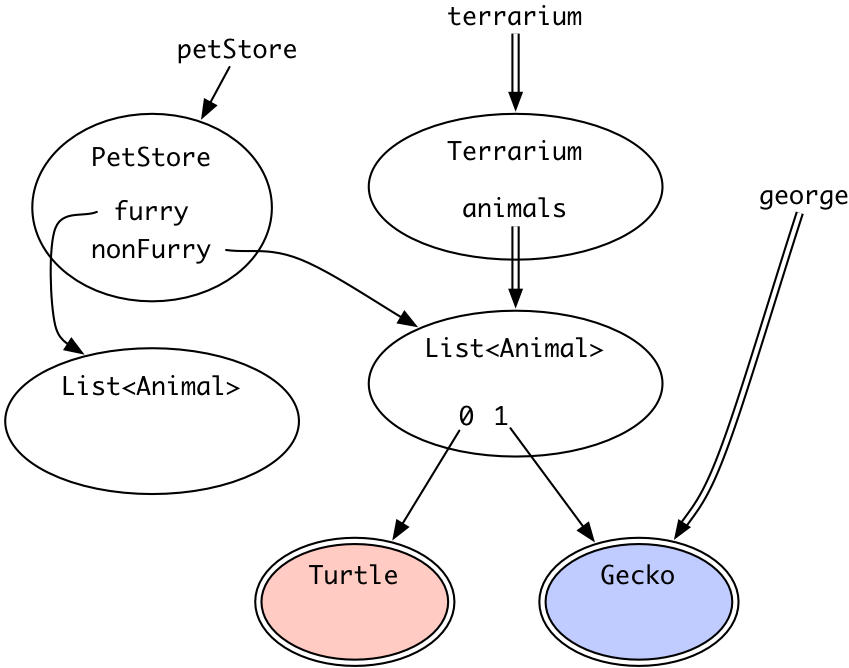Immutable Strings: A Secret Part in Ensuring Data Consistency and Integrity
In the world of information monitoring, the relevance of unalterable strings can not be overemphasized. These unvarying sequences of personalities play a critical role in supporting the stability and precision of information within systems. By maintaining a state of immutability, information consistency is made certain, cultivating a structure of integrity upon which essential processes count. The concept of unalterable strings goes beyond plain triviality; it is a cornerstone in the complex web of data governance. As we check out the benefits, implementation methods, and practical applications of immutable strings, a clearer picture arises of their important nature in protecting the digital landscape.
The Concept of Unalterable Strings
Unalterable strings, a basic concept in shows, refer to strings that can not be customized once they are produced. Basically, when a string value is appointed, any kind of procedure that appears to modify the string actually produces a new string. This immutability guarantees data uniformity and dependability in applications, as it stops unforeseen adjustments to the initial data.
Benefits in Information Consistency

Information consistency is critical in various aspects of software growth, consisting of database management, multi-threaded settings, and dispersed systems (Why are strings immutable in Java?). Immutable strings add dramatically to attaining this uniformity by protecting against data corruption because of concurrent access. In situations where multiple procedures or threads communicate with the very same data concurrently, immutable strings function as a safeguard versus race conditions and synchronization concerns
Moreover, the immutability of strings simplifies debugging and screening processes. With unalterable strings, designers can rely on that as soon as a string is set, it will certainly continue to be unmodified, making it simpler to trace the resource of mistakes and making sure that test cases create regular results. This reliability in data handling eventually results in extra robust and stable applications.

Carrying Out Immutable Strings
Ensuring the immutability of strings calls for a thoughtful strategy to their implementation in software program advancement. As soon as a string things is created, one vital method is to make string classes in a means that stops alterations. By making strings unalterable, designers can enhance information uniformity and dependability in their applications.
To apply immutable strings properly, programmers need to favor developing brand-new string items instead of customizing existing ones. This technique makes certain that when a string is assigned a read review value, it can not be altered. Additionally, any kind of operation that appears to customize the string ought to develop a new string with the wanted modifications rather of altering the original.
Additionally, utilizing immutable strings can streamline concurrency management in multi-threaded environments. Considering that unalterable strings can not be changed after development, they can be safely shared among several threads without the threat of data corruption.
Role in Dependability Guarantee
In software application advancement, the use of unalterable strings plays an important duty in making certain the reliability of information procedures. Immutable strings, when developed, can not be modified, making sure that the information they stand for continues to be constant throughout the application's implementation. This immutability building gives a degree of assurance that the data being processed will not be accidentally altered, leading to unexpected end results or errors in the system.
By incorporating immutable strings into software layout, developers can improve the dependability of their applications by minimizing the dangers related to mutable data - Why are strings immutable in Java?. Unalterable strings help in stopping data corruption or unintended alterations, which can be especially crucial when handling sensitive details or when data stability is vital
In addition, the use of immutable strings streamlines simultaneous processing, as several threads can securely access and share string information without the danger of one thread modifying the content while another reads it. This element adds dramatically to the general integrity of the software system, making sure constant and predictable habits in data dealing with operations.
Applications and System Assimilation
The smooth integration of unalterable strings into different applications and systems is critical for making certain durable information consistency and integrity across diverse technical atmospheres - Why are strings immutable in Java?. Unalterable strings play a vital duty in enhancing the honesty of data exchanges and interactions within complex software program Why are strings immutable in Java? communities. By including unalterable strings right into applications, designers can minimize the dangers related to information meddling, unapproved adjustments, and unintentional modifications, thus strengthening the overall safety posture of the system
In the context of system assimilation, immutable strings function as a fundamental aspect for developing secure communication networks and assisting in smooth data transfers between various components. Their immutable nature makes certain that data sent between systems continues to be proven and unmodified, decreasing the possibility of disparities or errors that might endanger the integrity of the whole system. Moreover, immutable strings can enhance interoperability in between diverse systems by providing a standardized style for data depiction, making it possible for more efficient data handling and exchange protocols across interconnected platforms. By embracing immutable strings in applications and system integration processes, companies can strengthen their information facilities and promote the reliability and uniformity of their details possessions.
Conclusion
To conclude, unalterable strings play an essential role in keeping data consistency and integrity in numerous applications and system assimilations. By ensuring that strings can not be changed as soon as created, the honesty of data is preserved, lowering the danger of inconsistencies and mistakes. Executing unalterable strings image source can significantly boost the dependability of systems, eventually bring about even more trustworthy and accurate information processing.
